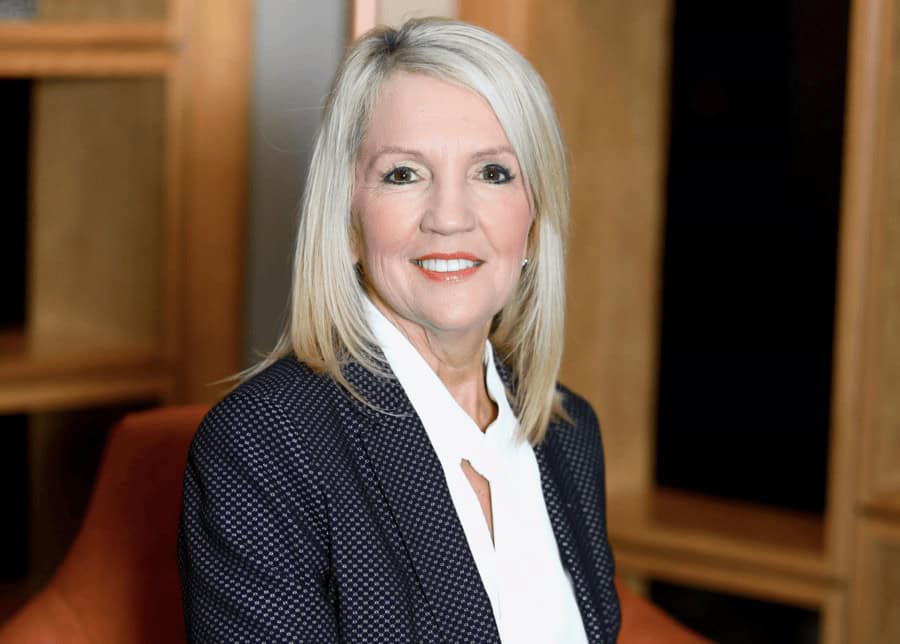
Local government is working through one of the toughest periods it has faced in decades: rising demand for social care, shrinking budgets, pressure on the workforce and the challenge of a national telephony upgrade, writes Alyson Scurfield, Chief Executive of the TEC Services Association (TSA).
In just over a year, the UK’s ageing analogue landline network will be switched off and replaced with digital lines. More than two million people rely on telecare devices connected to these networks, meaning councils now face the complex task of upgrading equipment and call-handling systems to make sure vulnerable residents remain supported.
Yet this is also a moment of opportunity. The move to digital gives local authorities the chance to rethink how technology can promote independence and support wellbeing. Increasingly, TEC is recognised by social care leaders as central to meeting future need – particularly as an enabler of new neighbourhood health models.
When it’s used well, digital care can help identify problems early and step in before they become a crisis. It can support care professionals to make better informed care decisions, avoiding crisis in the lives of people who draw on care.
Advertisement | Continue story below
What does good look like?
Good practice starts with focusing on outcomes rather than the technology itself. Over the past five years, TSA has worked with suppliers through quality frameworks and working groups to encourage a more collaborative, person-centred approach. Interoperability, once avoided by some providers, is now becoming standard.
When suppliers agree to share data and integrate devices – such as through TSA’s Interopererability Matrix – councils can offer people genuine choice without compromising safety.
As we shift to new models that blend in-person care with reactive and proactive services, we are creating new ways to support people. A discreet sensor might flag changes in someone’s routine and prompt a response team to make contact.
Families gain reassurance through an app, and care workers can plan visits based on who needs help most. This frees up staff time for meaningful, face-to-face support and can prevent avoidable hospital admissions.
Collaboration also extends beyond suppliers. Neighbourhood health models will be enabled by bringing Councils, housing providers, GPs and community organisations together, so that they can better identify needs, share information and deliver better care outcomes and better care experiences.
Commissioners also have an important role to play. Sheffield City Council is a good example of how a new approach to commissioning can deliver better results for everyone. As part of its plans for the digital switchover and a shift towards proactive, preventative care, Sheffield brought three providers together under a single TEC project.
Residents now receive a mix of discreet sensors and digital alarms, with data shared securely in one place. This enables response teams to act quickly and gives families confidence that their loved ones are being supported. The council can also adapt its service model as needs evolve and technology advances.
Sheffield’s approach, however, also highlights the practical barriers that still exist. Traditional procurement rules were built for single supplier contracts, which can make it harder to foster collaboration.
Procurement teams need support and confidence to design outcome-based contracts that reflect modern ways of working. National care technology standards will help, but there also needs to be flexibility so that joint services can be scaled effectively.
What local leaders can do
The digital switchover which will see the end of analogue systems is not simply an IT project. It connects to the very values of local government: people, place, purpose and fairness. To protect residents and make the most of digital care, councils can:
- Audit current systems: know what technology and contracts are in place and plan for the move to digital lines.
- Commission for outcomes: define success clearly and invite providers to work together, showing how their devices integrate and how they will share data.
- Invest in people: build digital confidence among care professionals, carers and people who draw on care so that technology becomes an enabler, not a burden.
- Share learning: highlight success stories, and advocate for more flexible procurement and sustainable funding.
This can seem daunting. There will be technical hurdles of course and people have differing attitudes towards risk and we can all be anxious about change. But the alternative is worse: incompatible systems, missed opportunities to reimagine care delivery and an even wider gap between what people need and what services can deliver.
Seizing the opportunity
With so many daily pressures, it’s easy to see managing technology as another item on an already long list. But from my many years in the TEC sector, I’ve seen that when digital tools are shaped around people and built on genuine partnership, they can make a real difference.
The digital switchover offers a rare opportunity to rethink and redesign how care is delivered – and together, we can take it.
THIIS ROUND-UP
Join the 3,750+ mobility professionals who stay informed with THIIS’ twice-weekly industry updates.
Thank you for subscribing.
Something went wrong.
We respect your privacy
https://thiis.co.uk/comment-reimagining-social-care-how-sheffield-seized-the-digital-opportunity/https://www.europesays.com/uk/wp-content/uploads/2025/11/Screenshot-2025-11-13-at-07.51.41.jpghttps://thiis.co.uk/wp-content/uploads/2025/11/Screenshot-2025-11-13-at-07.51.41-150×150.jpg2025-11-13T07:57:01+00:00Liane McIvorAnalysis & InsightsNewsroomOpinions & Commentsdigital care,independence,Sheffield,social care,TEC,TSALocal government is working through one of the toughest periods it has faced in decades: rising demand for social care, shrinking budgets, pressure on the workforce and the challenge of a national telephony upgrade, writes Alyson Scurfield, Chief Executive of the TEC Services Association (TSA).
In just over a year,…Liane McIvorLiane
McIvorliane@thiis.co.ukEditorTHIIS Magazine
